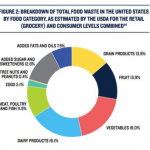Recovery Efforts Stalled, Chipotle Faces Challenges That Go Well Beyond Food Safety
Almost a year after Chipotle co-CEO Steve Ells publicly apologized in newspapers and on TV for a series of food-safety outbreaks that sickened hundreds of customers and sent restaurant sales into free-fall, Ells did a conference call with investors on Monday afternoon to offer yet another mea culpa. “I’m not satisfied with the pace of our recovery…but I’m not here to dwell on how dissatisfied I am,” he said. “I’m here to accept responsibility for letting our simple business become overly complex.”
Chipotle held the unusual call with shareholders after it announced this week that Monty Moran, Chipotle’s other co-CEO and a longtime friend of Ells’s, will step down from his role and board seat in early 2017. Ells spent much of the call explaining why he’s right person to run the company as its sole remaining CEO and that he’ll focus his attention on correcting operational inefficiencies.
But the greater significance of the call was Ells’s acknowledgement that the challenges facing Chipotle go well beyond issues of food safety, a fact that, until recently, Ells and his executive team seemed unwilling to admit. “Last year, everything changed,” Ells told investors. “The [food-safety] events exposed some weaknesses that our momentum in earlier years may have masked.”
Ells went on to detail some of the company’s problems. Its hiring process? Broken, he said, leading to a loss of talent. Employee training? Not enough of a priority, one reason for the company’s high turnover rates. Chipotle’s much-vaunted “restaurateur program,” the centerpiece of its “people culture” that’s designed to give kitchen workers a path to becoming store managers? It has become too “elaborate” and “esoteric,” Ells said, before complaining about the company’s outmoded metrics for success, which he called “complicated” and “very redundant.”
These were jaw-dropping reversals from Ells. Only three months ago, I was on the phone with him and Moran discussing these very topics for our recent profile of the company, and the pair sounded offended that I would even suggest there were issues with its work culture and restaurateur program. “Boy, not true at all,” responded Moran, who implied I must’ve been talking to “disgruntled” former employees. Ells, for his part, accused me of having an agenda when prodded about other Chipotle culture issues. “If you want to be sensationalist about this, you’re certainly going to be able to spin it,” he said.
Yet multiple sources had told me that Chipotle was plagued with problems. Its restaurants were built on a culture of classifying workers as either “higher performers” or “low performers,” a system which made many employees feel disposable; over the years, the company had gutted if not neutered its human resources department, leaving many workers without the ability to voice their concerns; and Chipotle’s restaurateur program eventually become rife with bureaucratic headaches. In order to rise from crew member to kitchen manager, for example, workers had to complete a development guide filled with more than a hundred pages of self-reviews and manager evaluations; knowledge and ability check lists; and paragraph-size journal entries.
The food-safety crisis only exacerbated things, burdening these low-paid workers with numerous added responsibilities. Yet both CEOs refused to acknowledge problems with the program, let alone a slew of additional cultural issues I raised. “[The system is] not perfect, but it’s very, very healthy, it’s very good, and rewards the best people,” Moran said. “I spend all of my time working on making this culture the very best it can be.”
On the conference call this week, however, Ells seemed to have had a come-to-Jesus moment. Contradicting much of what he and Moran told me, Ells said Chipotle’s restaurants have become “more and more complicated,” adding that “we created so many distractions for our managers and crews” which “made it increasingly difficult for [them] to focus on customer experience.” He promised to focus the next stage of his CEO tenure on simplifying “all aspects of the company’s operations.”
It’s refreshing to hear this measure of candor but it’s also troubling. It either means Ells knew of these problems before and apparently decided not to be forthright with the public, the press, and with investors about Chipotle’s internal woes, or it means Ells was oblivious to these issues, and only learned of them sometime between now and late September, when we had our last conversation. Neither scenario looks good for Ells, who is, after all, Chipotle’s founder, CEO, and chairman.
Worse, Ells promised investors on the conference call that these issues could be fixed “immediately…this is not a case where we have to reinvent the way we do things, and then implement a new system and expect it to take years. We can have very immediate impact on our restaurants.” Having spent more than seven months reporting on the company, I’m deeply skeptical of this claim. As we concluded in our November feature, Chipotle’s internal struggles are more systemic than Ells seems ready to admit; they can’t simply be resolved overnight.
Nevertheless, Ells’s apparent move toward more transparency is at least a step in the right direction (and undoubtedly a part of Chipotle’s revised PR strategy). But the more truthful Ells is about Chipotle’s struggles going forward, the more awkward revelations that might result. It wasn’t too long ago, for instance, that Ells told me he’s more confident than ever in his restaurant teams, operations leaders, and Chipotle’s food quality, yet last week he told a crowd of investors that roughly half of the company’s locations were failing to live up to his standards, grading their customer experiences a “C” or worse. Why did it take so long for Ells to have this epiphany? A spokesperson for Chipotle declined to make Ells available for comment.
It thus shouldn’t come as a surprise that some observers are skeptical of Ells’s newfound appetite for change. In the eyes of some investors, this is all too little, too late. As CtW Invest Group, a vocal critic of the company, wrote in a note published Tuesday, “Despite (December 27, 2016)’s announcement…we remain troubled by the company’s trajectory.”
Fast Company , Read Full Story
(62)














